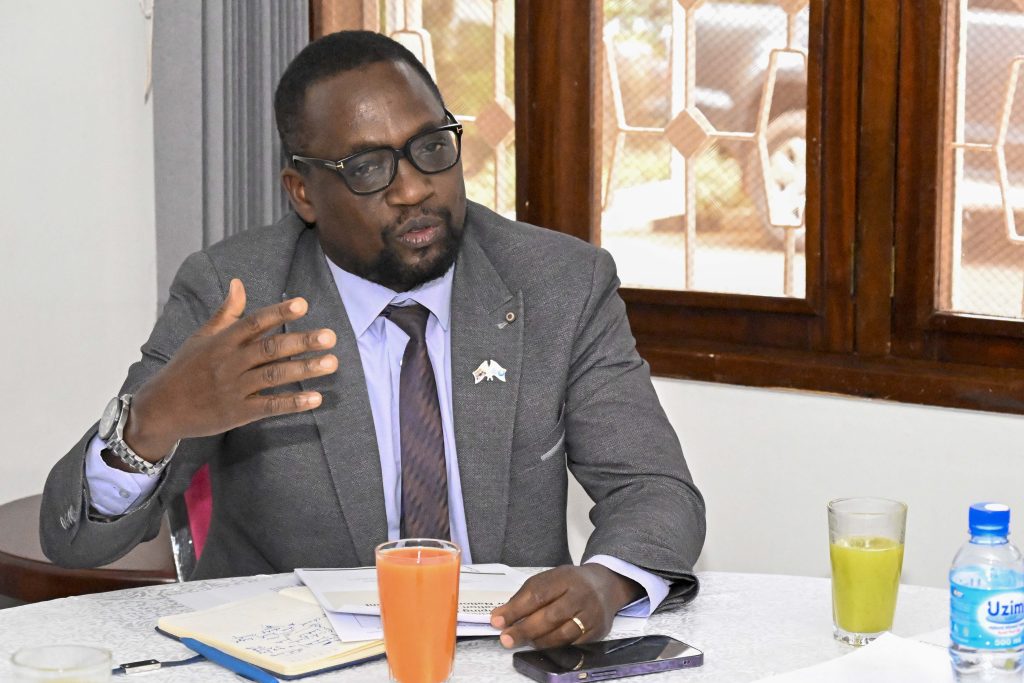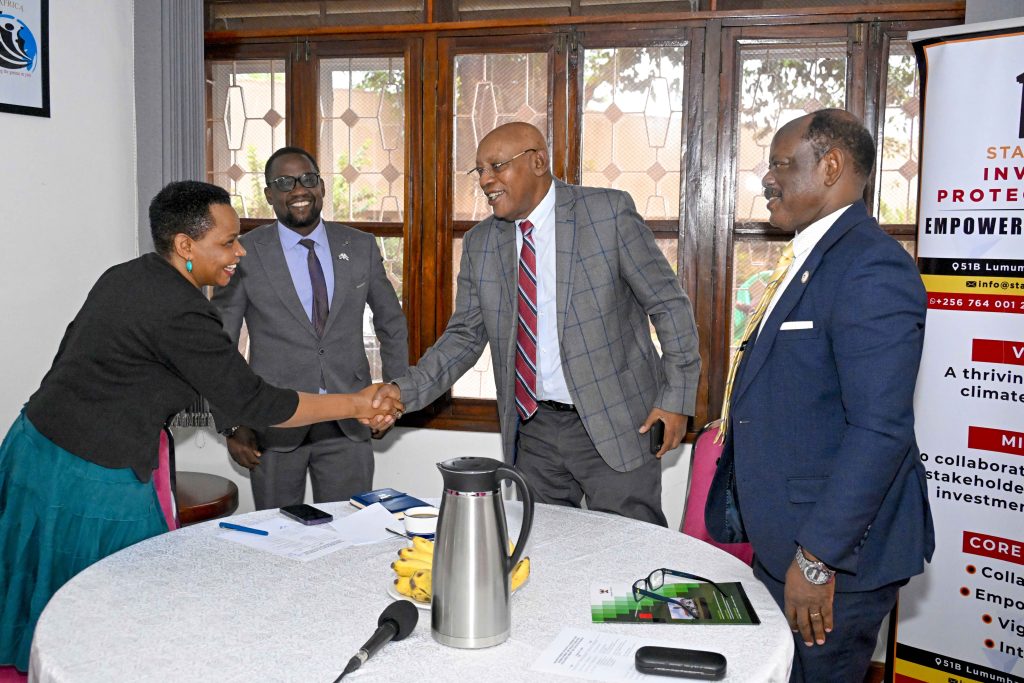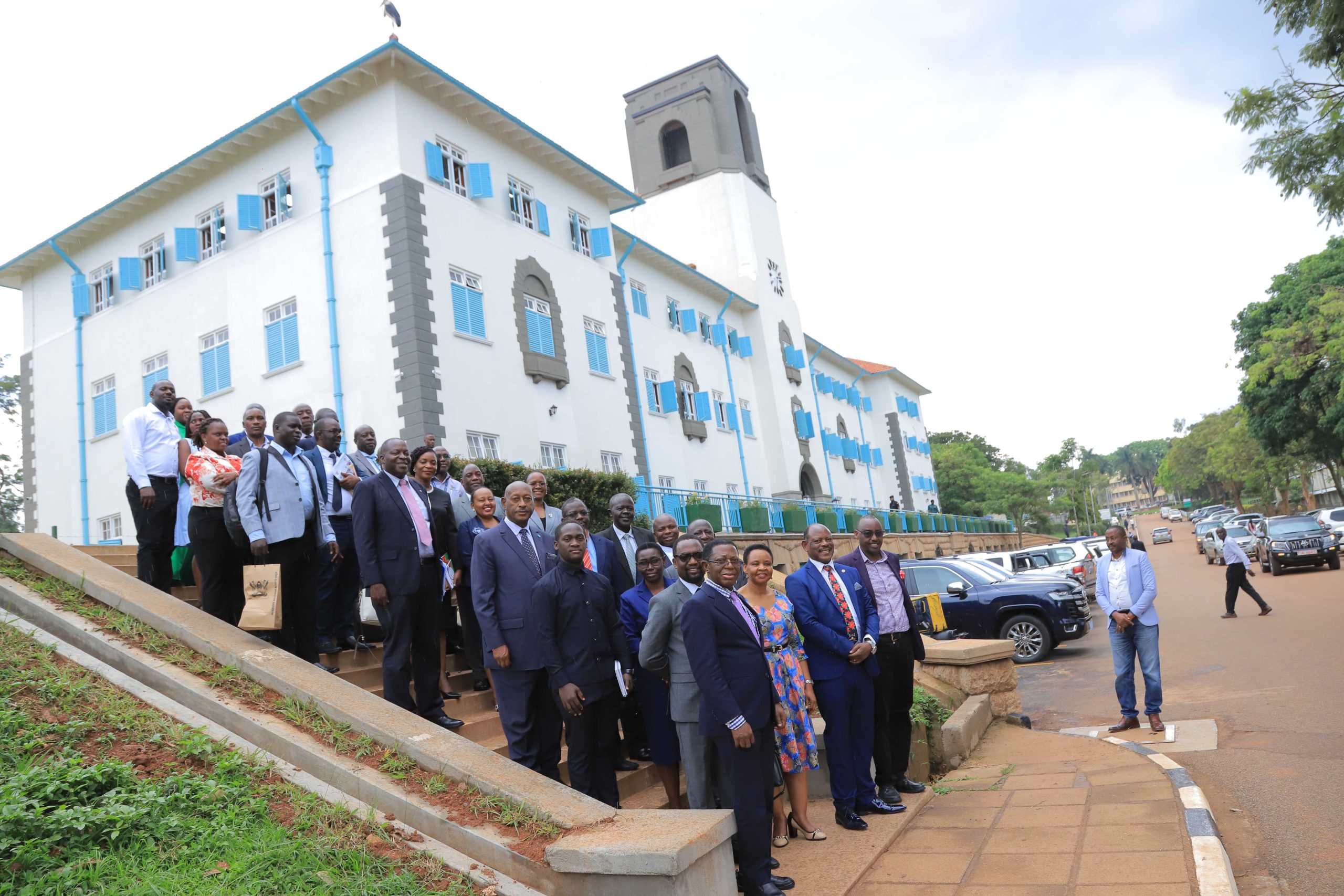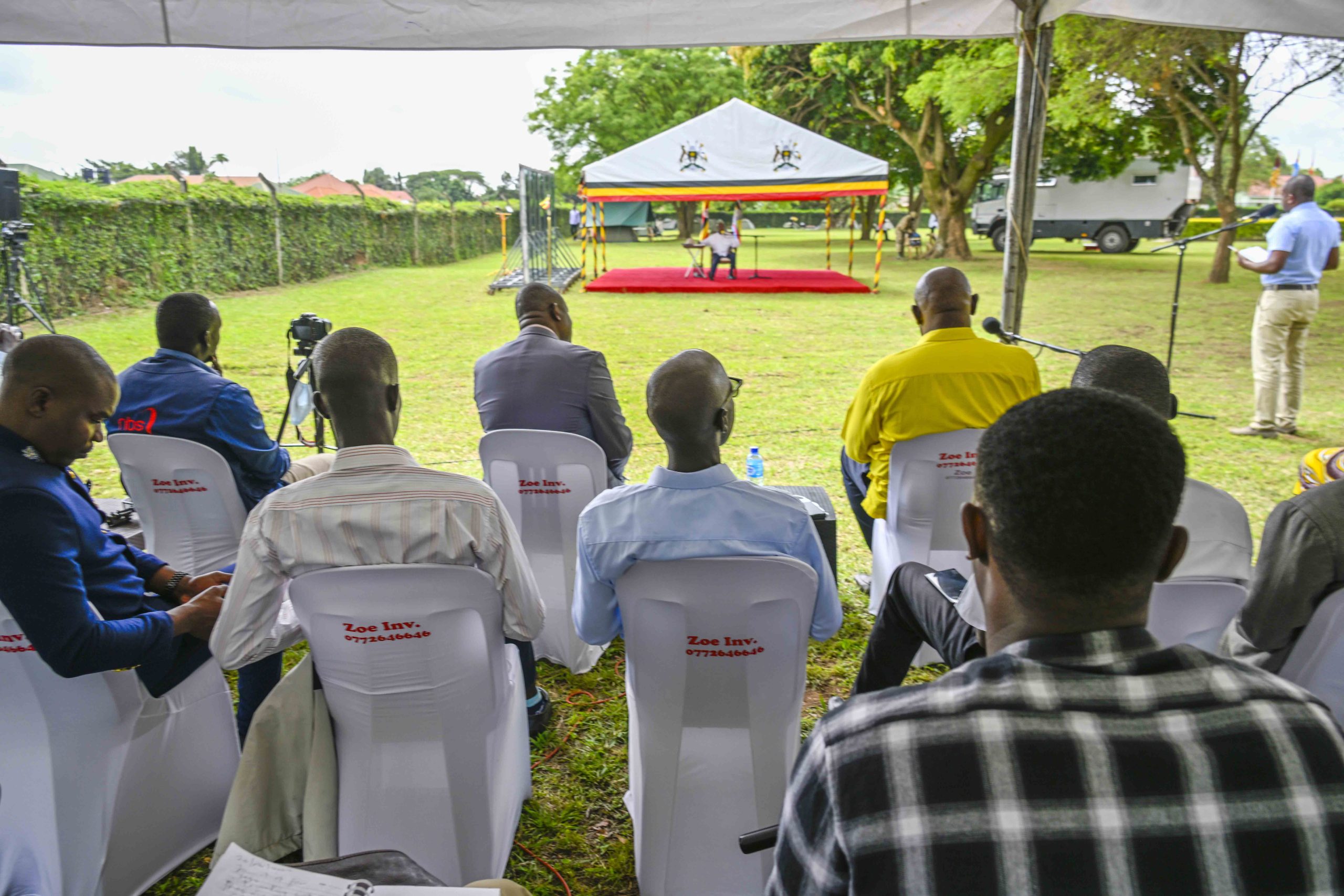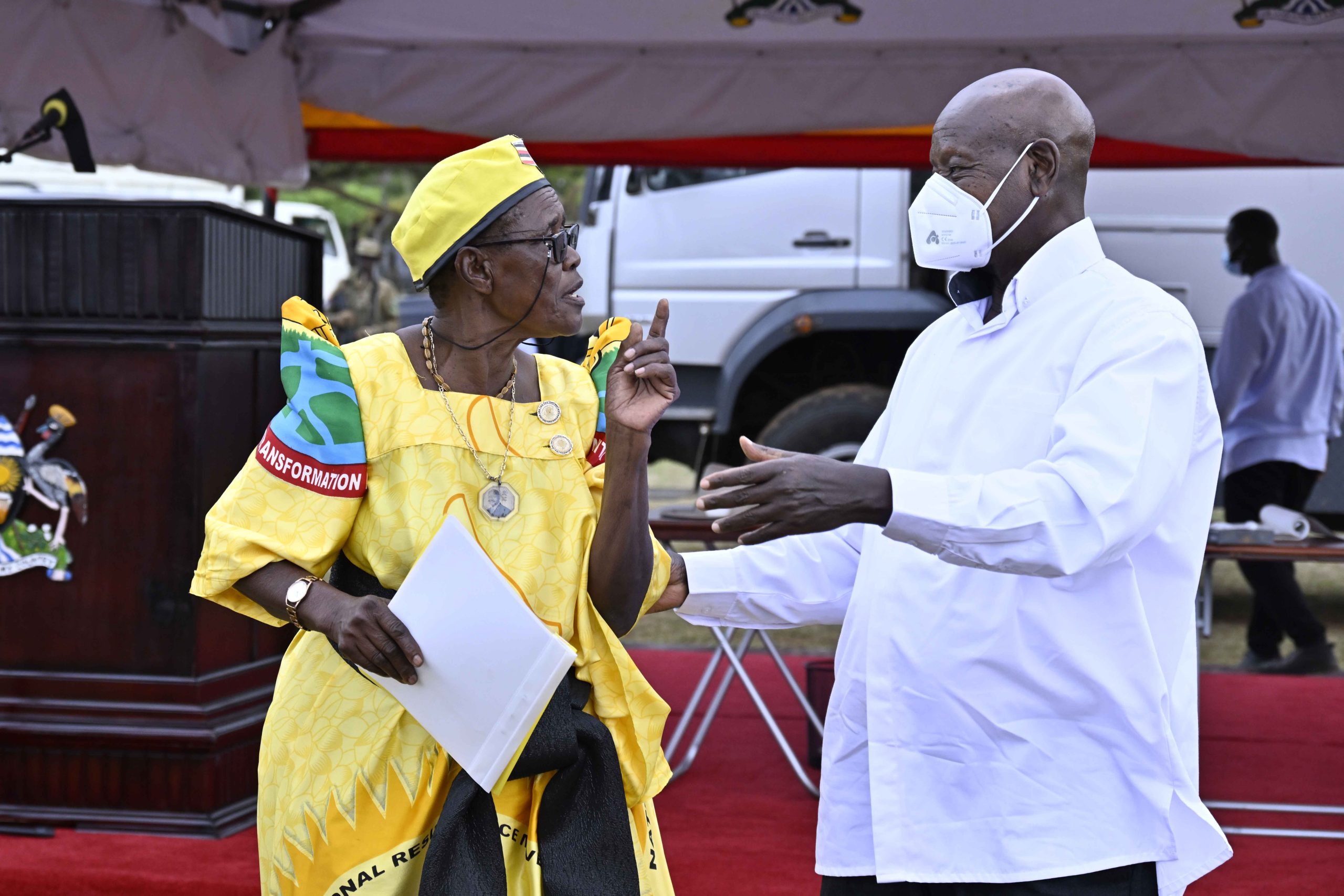The State House Investors Protection Unit (SHIPU) Head, Col. Edith Nakalema and has today held a fruitful meeting with top academicians in the country.
The meeting held at the SHIPU offices in Kampala, was aimed at brainstorming on how to address the unemployment and wealth creation challenges among the youths in Uganda.
Col. Nakalema informed the academicians that Uganda’s population is majorly made of young people and as stakeholders, they should do what it takes to address the concerns that affect them if a country is to achieve the much-desired socio-economic transformation.
“The young people from 0 to 35 years are 82 percent. Actually, this means the majority of Ugandans are young,” she said.
She said the government has over the years been coming up with several interventions such as Youth Livelihood Fund, Presidential skilling in order to create jobs and wealth among the youths.
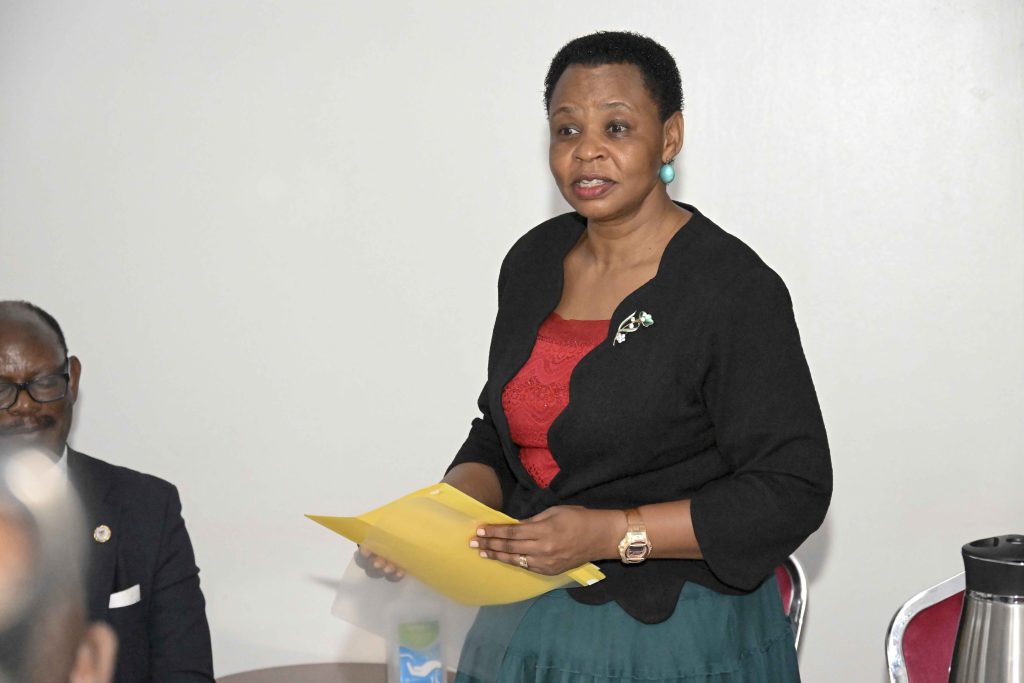
Col. Nakalema however noted that despite these efforts, the challenges still persist and in the end they lead to disgruntlement.
She therefore advocated for a holistic approach to deal with the challenges to enable the youth to progressively contribute to national development.
“To ensure the success of interventions crafted to solve the challenges faced by the youth, it is critical that targeted and focused solutions are developed to address their unique challenges.”
Col. Nakalema also commended Makerere University’s Vice Chancellor, Prof. Barnabas Nawangwe for eliminating strikes at the institution.
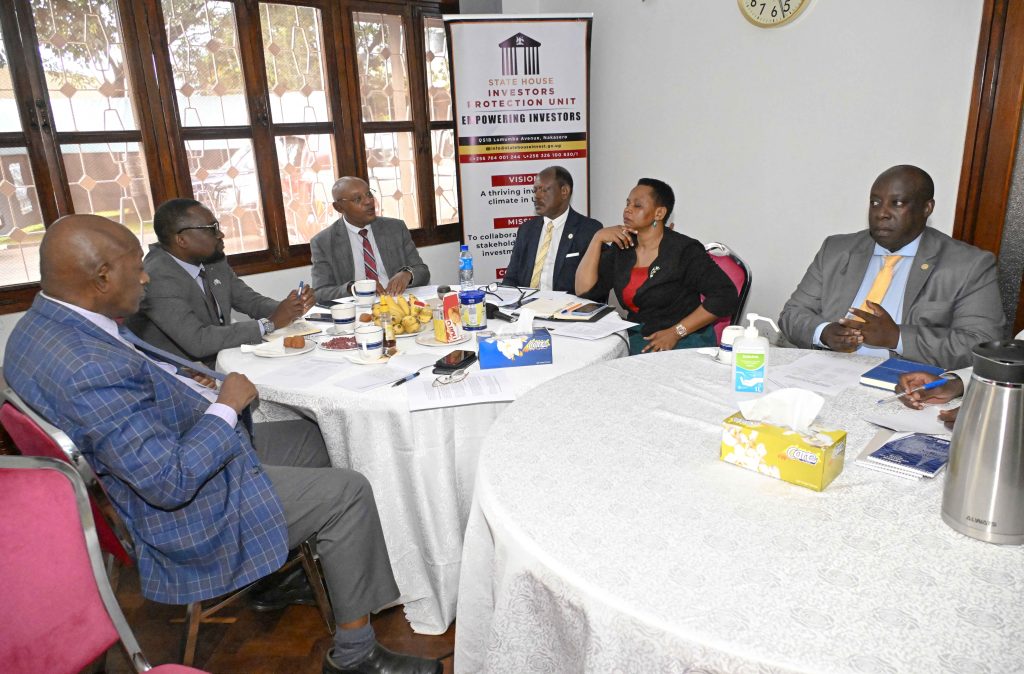
“It has been over 5 years now without seeing Makerere University students striking,” she said.
On his part, Prof. Nawangwe advised the government to keep the graduates off the street by coming up with several initiatives like the national service that keep them productive.
“Make much use of these graduates by engaging them properly. With our big population, the group that must be dealt with first are the graduates because they have got organisational power and expectations,” he said.
Prof. Nawangwe further urged that Uganda’s large unemployed graduate population can be a source of instability if not addressed properly but it can also be a trigger to enhanced socio-economic development if properly managed through targeted schemes.

“All the riots I have seen across the country, the source is the graduates. Every time people riot, they take an institution back several years.”
Prof. Nawangwe proposed the Uganda Graduate Employment and Entrepreneurship Transition Scheme (UGEETS) to harness the skills of graduates to drive socio-economic transformation at the grassroot level.
“The main social benefit of this scheme will be the reduction in crime and social tensions that result in civil commotion as well as improved living standards of the population,” he said.
“Economically, it is estimated that the scheme will stimulate economic activity and increase productivity by at least 10 percent, hence contributing to Uganda’s revenue of at least Shs1 trillion by the 5th year of implementation.”

Dr. Ben Mbonye, a healthcare practitioner and consultant noted that youth unemployment especially among the graduates is a security threat that could land a country into trouble.
He further explained that the society has a lot of challenges which need skills to be solved. However, he disclosed that Uganda’s training system (skills) does not address the demands of the society.
“We must do a market survey to know what our society wants. Then we align it to the training that we are going to offer so that we don’t end up with rotting materials,” Dr. Mbonye said.
He also advised that to deal with unemployed graduates on streets, the government should set up institutions that offer technical and practical skills to the youths and in turn they set up their own enterprises.

“This is a preventive security measure,” he said.
Associate Prof. Bruce Kirenga, Director Lung Institute, Makerere University highlighted the practical strategies that can help to develop the country through the knowledge economy.
“The Knowledge economy constitutes a big proportion of national economies. According to the US Chambers of Commerce, IP-Intensive industries account for over a third of GDP. In Uganda we have a sleeping giant which is not being attended to,” Associate Prof. Kirenga said.
Prof. Gerald Karyeija, a Senior lecturer at Uganda Management Institute (UMI) and Policy Analyst called for a review of the National Youth Policy and Strategy so that it aligns with the current needs among the young generation.

“We need a whole rethink of the policy to match the new trends.”
He also stressed that the initiatives that are aimed at empowering the youth are scattered and they need to be integrated so that they can be more impactful.
The former Attorney General, Hon. Fred Ruhindi suggested that as stakeholders, they should aim at building hope for the young generation.
“We should keep on engaging the youths on different forums so that we give them hope.”
